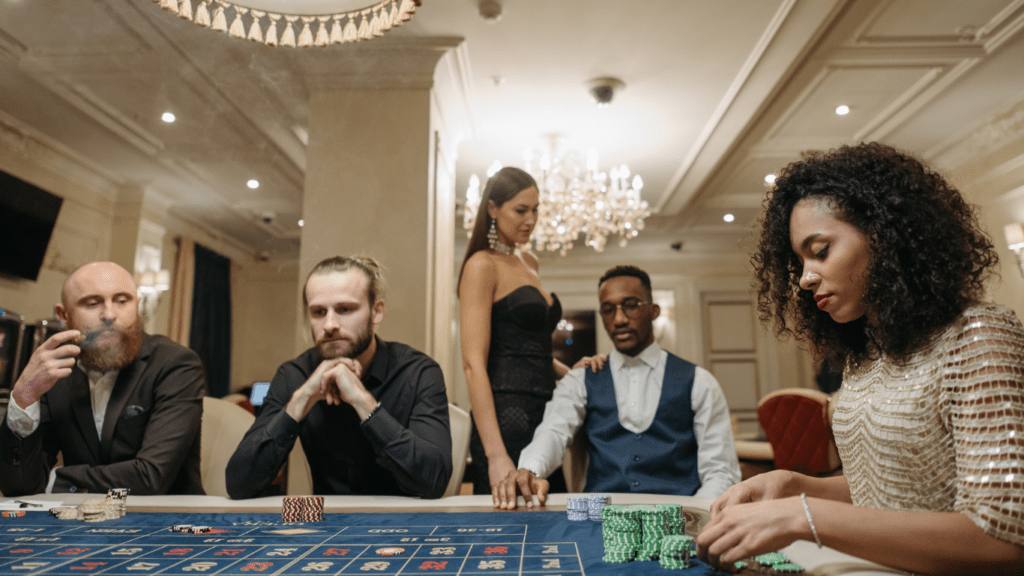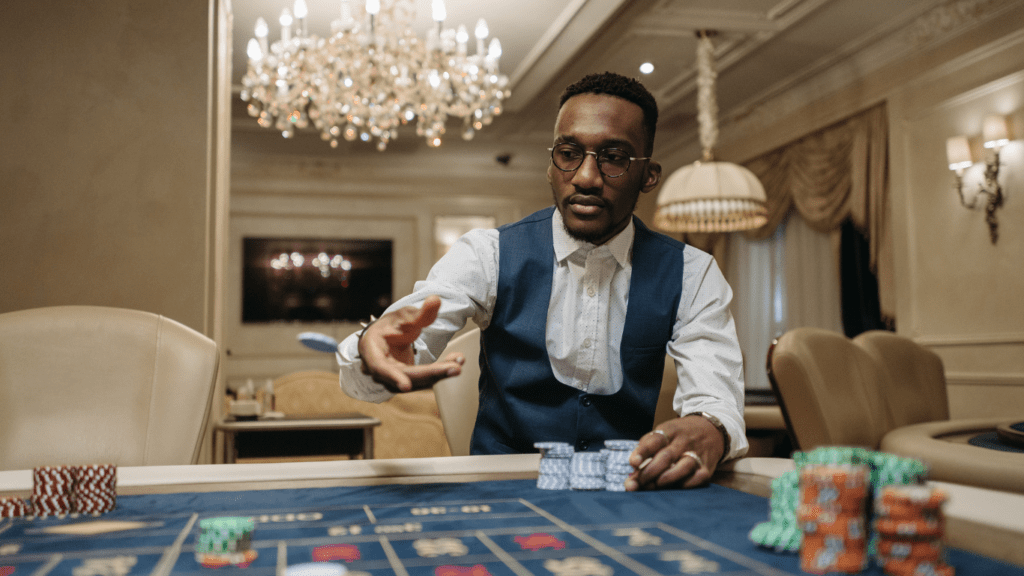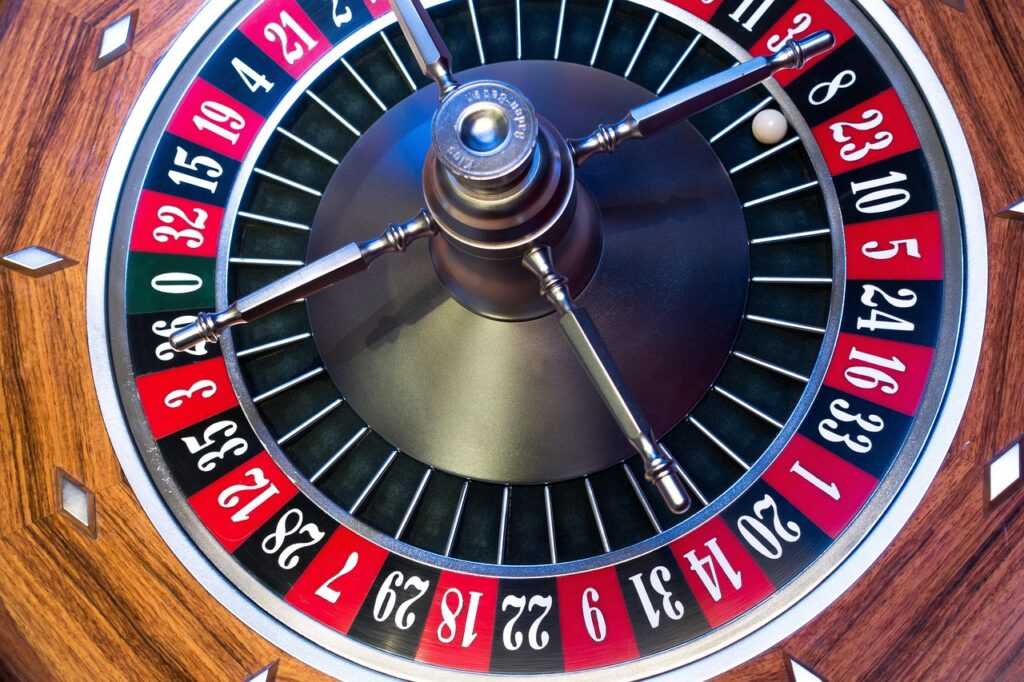Understanding Cognitive Biases
Cognitive biases are systematic patterns of deviation from norm or rationality in judgment, and they often affect gambling decisions. They’re mental shortcuts our brains use to process information quickly but sometimes lead to errors.
Types of Cognitive Biases
Several cognitive biases influence gambling behaviors:
- Gambler’s Fallacy: This bias is the mistaken belief that past events affect future probabilities in independent events, like assuming a coin is due for heads after several tails.
- Hot-Hand Fallacy: This is the belief that a person who’s experienced success with a random event has a higher chance of further success, such as thinking a winning streak in blackjack will continue.
- Confirmation Bias: This involves favoring information that conforms to existing beliefs and ignoring contradictory evidence, like focusing only on wins and disregarding losses.
- Optimism Bias: The tendency to overestimate the likelihood of positive outcomes, often leading gamblers to believe they’ll win despite the odds.
Impact of Cognitive Biases on Gambling
Cognitive biases significantly impact gambling decisions by skewing perception and judgment.
- Illusion of Control: This bias leads gamblers to believe they can influence unpredictable outcomes, like feeling in control while rolling dice.
- Anchoring: Gamblers might rely too heavily on the initial piece of information they receive, such as a starting bet, which influences subsequent betting decisions.
- Availability Heuristic: If a gambler recently witnessed a big win, they might overestimate the likelihood of it happening again, affecting their risk assessment.
Recognizing and Mitigating Cognitive Biases
Understanding these biases is crucial for making more informed gambling choices. When gamblers recognize their biases, they can take steps to mitigate them.
- Awareness: Simply being aware of biases can help in questioning irrational thoughts and decisions.
- Education: Learning about the probabilities and odds associated with gambling games helps in making more rational choices.
- Objectivity: Focusing on facts and statistics rather than emotions and instinct aids in reducing biased thinking during gambling.
Recognizing and addressing cognitive biases can assist gamblers in reducing irrational decisions, ultimately promoting healthier gambling habits and minimizing potential losses.
Types of Cognitive Biases in Gambling
Cognitive biases significantly shape gambling decisions, often leading players toward irrational choices and substantial losses. Understanding these biases helps in identifying and mitigating their effects on gambling behavior.
The Gambler’s Fallacy
The Gambler’s Fallacy revolves around the mistaken belief that past outcomes influence future events in a game of chance. For instance, if a coin lands on heads multiple times in a row, a gambler might irrationally expect tails to appear next, assuming a balance must occur. Recognizing that each coin flip is independent can reduce the impact of this bias.
Confirmation Bias
Confirmation bias drives individuals to favor information that supports their existing beliefs and ignore evidence to the contrary. In gambling, a player might remember wins that validate a winning strategy while overlooking losses. This selective attention skews the perception of success, prompting continued betting based on flawed reasoning.
The Hot Hand Fallacy
The Hot Hand Fallacy is the belief that a person on a winning streak has a higher chance of winning subsequent bets. For example, a gambler who wins several slot machine spins might believe they’re “hot” and keep betting, falsely assuming continued wins. This bias ignores the randomness inherent in each bet.
Availability Heuristic
Availability heuristic occurs when people judge the likelihood of an event based on how easily examples come to mind. A gambler may overestimate their chances of winning a jackpot if they’ve recently heard about a big winner. This cognitive shortcut can lead to unrealistic expectations and riskier bets, as recent, vivid events disproportionately influence decisions.
By understanding these cognitive biases and their impact, gamblers can strive for more rational and informed choices, ultimately promoting healthier gambling habits.
Psychological Mechanisms Behind Cognitive Biases
Understanding the psychological mechanisms behind cognitive biases helps explain why individuals make irrational decisions while gambling. Various biases contribute to flawed judgment and persistent gambling errors.
Anchoring Effect
The anchoring effect causes gamblers to rely heavily on the first piece of information they encounter. This initial data point, or “anchor,” significantly influences subsequent decisions. For instance, if a gambler sees a high jackpot amount, they might be more inclined to place larger bets, believing their chances of winning are better.
Overconfidence Bias
Overconfidence bias leads gamblers to overestimate their skills or the accuracy of their predictions. They might believe they have a “system” or special knowledge that increases their odds of winning. This misplaced confidence results in higher stakes and more frequent gambling, often culminating in significant losses.
Illusion of Control
The illusion of control convinces gamblers that they can influence outcomes in games of chance. They might think they can control dice outcomes by throwing them a certain way or choosing specific lottery numbers. Despite the random nature of these games, the belief in personal control persists, driving repeated gambling behavior based on a false sense of influence.
The Negative Effects on Gambling Decisions

Cognitive biases significantly impact gambling decisions, often leading to detrimental outcomes. These effects are evident in both financial and emotional aspects.
Financial Implications
Gambling decisions influenced by cognitive biases often result in substantial financial loss. The Gambler’s Fallacy and Hot-Hand Fallacy, for instance, lead gamblers to believe in patterns that don’t exist, prompting continued betting and accumulating losses. The Illusion of Control makes individuals overestimate their influence on the outcome, causing them to wager more money than is prudent. These repeated irrational choices drain financial resources and can lead to serious debt.
| Bias Type | Financial Outcome |
|---|---|
| Gambler’s Fallacy | Increased betting, accumulated losses |
| Hot-Hand Fallacy | Misguided confidence, larger wagers |
| Illusion of Control | Overestimation of influence, increased spending |
Emotional Consequences
The emotional toll of gambling decisions driven by cognitive biases is substantial. Overconfidence Bias leads to heightened expectations and subsequent disappointment when outcomes don’t match these expectations. This emotional rollercoaster creates stress and anxiety. The Anchoring Effect, where initial experiences shape future decisions, can lead to regret and frustration when those experiences are misleading. Emotional distress from these biases often exacerbates gambling habits, forming a vicious cycle of emotional and financial turmoil.
| Bias Type | Emotional Outcome |
|---|---|
| Overconfidence Bias | Disappointment, stress |
| Anchoring Effect | Regret, frustration |
Strategies to Mitigate Cognitive Biases
Effective strategies can help mitigate cognitive biases and improve gambling decisions. Here are key approaches:
Education and Awareness
Understanding cognitive biases like the Gambler’s Fallacy, Hot-Hand Fallacy, and Confirmation Bias is essential. Individuals who recognize these biases can make more informed decisions. For example, learning about the Illusion of Control can prevent overestimating one’s influence over random events. Additionally, knowing about the Availability Heuristic can help identify misplaced assumptions based on recent events.
Setting Limits
Setting clear time and monetary limits is crucial. By pre-determining how much time and money one will spend, it’s easier to avoid impulsive decisions driven by biases. For instance, setting a budget can curb the financial impact of Anchoring and Optimism Biases. Using tools like self-exclusion programs or pre-commitment schemes helps stick to these limits, reducing the risk of losses.
Seeking Professional Help
Professional help, such as cognitive-behavioral therapy (CBT), can address deep-rooted biases. Therapists can assist in identifying and correcting thought patterns linked to Overconfidence Bias or the Gambler’s Fallacy. Support groups offer shared experiences and strategies for combating biases collectively. If gambling becomes problematic, seeking professional intervention can provide essential guidance and support.



 Elizabeth Kaylor – Author
Elizabeth Kaylor is an experienced author and contributor at Smart Gamble Land. Specializing in casino game mastery and player psychology, Elizabeth provides readers with in-depth tips on how to approach popular casino games with confidence and precision. Her expertise in understanding player behavior, game dynamics, and strategy allows her to craft engaging content that appeals to both novice and experienced gamblers alike. Elizabeth's insightful articles offer readers the tools they need to thrive in high-stakes environments.
Elizabeth Kaylor – Author
Elizabeth Kaylor is an experienced author and contributor at Smart Gamble Land. Specializing in casino game mastery and player psychology, Elizabeth provides readers with in-depth tips on how to approach popular casino games with confidence and precision. Her expertise in understanding player behavior, game dynamics, and strategy allows her to craft engaging content that appeals to both novice and experienced gamblers alike. Elizabeth's insightful articles offer readers the tools they need to thrive in high-stakes environments.
